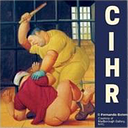Statement on Russian Invasion of Ukraine and Digital Human Rights

We condemn unequivocally, and in the strongest possible terms, the recent unlawful and unjustified Russian invasion of Ukraine. This unprovoked and unnecessary attack violates not only the territorial sovereignty of Ukraine, but presents gross violations of the dignity and human rights of Ukrainian citizens and a threat to democracy and the rule of law worldwide.
Furthermore, we endorse the International Criminal Court’s preliminary investigation of war crimes and crimes against humanity in Ukraine as well as the Office of the Prosecutor’s 2020 conclusion that there was a “reasonable basis to believe that a broad range of grave conduct constituting war crimes and crimes against humanity were committed” from 2013 onwards. We also wholeheartedly support the very recent decision by the ICC Prosecutor to open an investigation into possible war crimes and crimes against humanity committed by Russia and Belarus.
Russia’s continued pursuit of hybrid warfare in Ukraine, including conventional, cyber, and information warfare, threatens both the human rights and digital human rights of Ukrainian citizens, as well as those residing outside of Ukraine’s borders. These actions are unprecedented and present gross violations of international law and the Universal Declaration of Human Rights.
The targeting of civilians in high density areas with explosive devices, cyber and physical attacks on critical infrastructure, and the widespread use of disinformation campaigns within and outside Ukraine’s territorial borders are especially concerning in terms of human rights law, the Geneva Conventions and the ICCPR, but also in terms of an evolving concepts of digital human rights.
As we have noted in previous publications, the concept of digital human rights encompasses the rights of citizens not only to physical integrity and political, civil and economic rights, but rights in cyberspace– to include, but not limited to, the rights to data privacy and freedom from state-sponsored aggression (in the form of disinformation campaigns, digital surveillance, and cyberattacks).
The censorship and propaganda efforts of the Russian government impede not only the right to access the digital commons, but also the right to exercise one’s political, civic and economic rights of self-determination and security. These rights are not only being denied to the citizens of Ukraine, but also to Russian citizens in a vain attempt to hide the illegal nature of the invasion through arbitrary arrests and censorship of independent media.
It is imperative that every effort be made to preserve physical and digital evidence of these crimes, given the rapidly escalating multi-axis offensive against Ukraine. In this vein, we urge corporate ICT (information and communications technology) firms to be especially diligent in the preservation of potential evidence of war crimes, crimes against humanity and human rights violations for the relevant international tribunals.
#standwithukraine
Signed,
Dr. Marie-Michelle Strah, Dr. Carsten Momsen, Eva Navon, Marco Willumat, and Joseph Shiovitz
